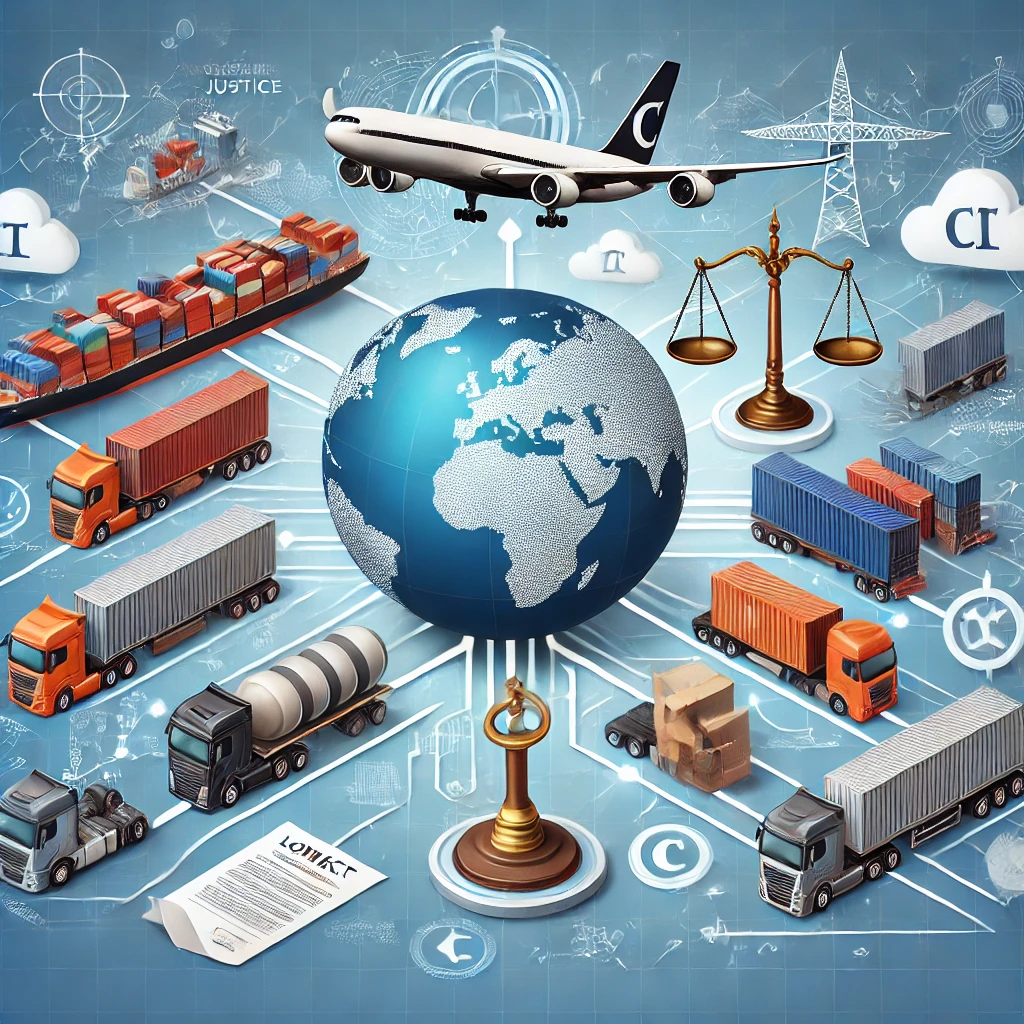Introduction
The growth of international trade has increased the need for efficient transportation networks and the legal frameworks that govern disputes arising from cross-border transport activities. Given Turkey’s strategic location at the crossroads of Europe and Asia, international transportation plays a significant role in its economy. Disputes arising from land, sea, and air transportation present complex challenges involving conflict-of-law rules and jurisdictional issues. This article examines the applicable law in international transportation disputes under Turkish law and discusses Turkey’s evolving role in the global transportation system.
1. Legal Framework for International Transportation in Turkey
- International Conventions and Treaties
- Turkey is a party to several international transportation agreements that harmonize legal standards across borders:
- Convention on the Contract for the International Carriage of Goods by Road (CMR) governs the international transport of goods by road.
- Hamburg Rules and Hague-Visby Rules apply to maritime transportation disputes.
- Montreal Convention regulates air transport liability for both cargo and passengers.
- Turkey is a party to several international transportation agreements that harmonize legal standards across borders:
- National Regulations
- Domestic transportation activities are governed by the Turkish Commercial Code and the Highway Traffic Law. The Commercial Code covers freight forwarding, logistics contracts, and liability issues, ensuring alignment with international conventions.
- Private International Law (Law No. 5718)
- Turkey’s Private International Law and Procedural Law (PILA) determines the applicable law and jurisdiction in cases where transportation disputes involve foreign parties. Conflict-of-law rules apply when transportation contracts are connected to multiple legal systems.
2. Determining Applicable Law in International Transport Disputes
- Choice of Law Clauses in Transport Contracts
- International transport contracts often include choice of law clauses specifying the legal system governing the contract. Turkish courts generally respect these clauses unless they conflict with mandatory Turkish rules or public policy.
- Default Rules in the Absence of Choice
- When parties do not specify applicable law, PILA rules apply, and the court determines the law based on:
- The place where the carrier has its principal place of business.
- The place where the goods were delivered or should have been delivered.
- The closest connection principle, focusing on the jurisdiction with the strongest ties to the dispute.
- When parties do not specify applicable law, PILA rules apply, and the court determines the law based on:
3. Jurisdiction and Dispute Resolution
- Turkish Courts’ Jurisdiction in Transport Disputes
- Turkish courts have jurisdiction over transport disputes if the contract was performed in Turkey or if Turkey is the place of delivery or loading. In some cases, jurisdictional challenges arise from overlapping claims in different countries.
- Arbitration in Transport Disputes
- Arbitration is a popular method for resolving international transport disputes, as it provides a private and efficient alternative to litigation. Turkey has adopted the UNCITRAL Model Law on arbitration, ensuring compliance with global standards. The Istanbul Arbitration Centre (ISTAC) is an emerging hub for transport-related arbitration.
- Mediation and Alternative Dispute Resolution (ADR)
- Mediation is becoming increasingly common, especially for disputes involving logistics and freight forwarding companies. Turkish law encourages ADR mechanisms to reduce the burden on courts and ensure quicker resolutions.
4. Challenges in International Transport Disputes
- Jurisdictional Conflicts and Parallel Proceedings
- In cases involving multiple jurisdictions, disputes may arise regarding which country’s courts have jurisdiction. Parallel proceedings in different jurisdictions can complicate the enforcement of judgments and lead to delays.
- Liability Limitations and Cargo Damage
- International conventions, such as the Hague-Visby Rules and Montreal Convention, limit the carrier’s liability. However, disputes may arise when contractual terms attempt to override these limitations, leading to legal uncertainty.
- Enforcement of Foreign Judgments and Awards
- The enforcement of foreign judgments in Turkey is governed by PILA and bilateral treaties. Turkey’s signatory status to the New York Convention facilitates the enforcement of foreign arbitration awards.
5. Turkey’s Role in Global Transport Networks
- Strategic Position and International Corridors
- Turkey’s location makes it a key player in Europe-Asia trade routes. The Belt and Road Initiative (BRI) and Trans-Caspian International Transport Route enhance Turkey’s importance as a logistics hub.
- Development of Maritime and Air Transport Infrastructure
- The expansion of Turkish ports and the Istanbul Airport strengthens Turkey’s position in global shipping and air freight networks, making it an attractive destination for international carriers.
- Regional Arbitration Hub
- The Istanbul Arbitration Centre (ISTAC) aims to position Turkey as a dispute resolution hub for transport-related conflicts, providing a neutral platform for resolving complex international disputes.
Conclusion
Turkey plays a vital role in international transportation, with a legal framework designed to align with international conventions and facilitate cross-border trade. Choice of law clauses, arbitration, and mediation offer effective mechanisms for resolving disputes in transport contracts. However, challenges such as jurisdictional conflicts and liability limitations require careful legal planning and robust contract management. As Turkey continues to develop its logistics infrastructure and dispute resolution capabilities, it is poised to strengthen its role in the global transport sector.

Yanıt yok